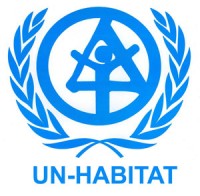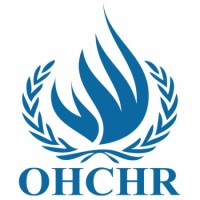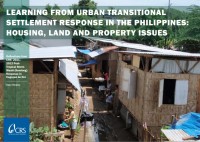Learn about concrete initiatives of governments, organisations of the civil society and of citizens themselves that implemented the right to housing. Here you find examples of initiatives in the legal area, as well as housing projects, policies and programs that, in practice, concretised this right. If you know of other examples, share them in this space. For that purpose, contact the Rapporteur, sending information for publication in this section.
Published in Friday May 3rd, 2013
In November 2012, the Parliament of Scotland adopted the Homelessness (Abolition of Priority Need Test) (Scotland) Order 2012, and the law came into force on 31 December. The legislation aims to effectively end homelessness by entitling all people facing homelessness unintentionally a right to settled accommodation.
In a ruling issued earlier today in Washington, D.C., a federal court denied the Obama Administration’s motion to set aside a 1993 court order against the federal government requiring compliance with Title V of the McKinney-Vento Homeless Assistance Act, a law that gives homeless services providers access to unused federal properties for free.
An encampment of homeless people in the woods near the Jersey shore will gradually be phased out as its 80 or so occupants are given at least a year of housing under an agreement reached today. The deal would eliminate the need for Lakewood’s so-called Tent City and end a seven-year dispute about local governments’ responsibility to care for the poor.
Published in Wednesday March 13th, 2013
To provide States and other stakeholders with further guidance on the normative content of housing rights – and thus to support the goal of developing a model framework on housing rights – UN-HABITAT published the report National Housing Rights Legislation, an effort to prepare an overview of relevant national legislation on right to housing. The report contains excerpts from a large number of constitutional clauses and other national legislation with respect to housing rights and seeks to represent a variety of legal, political, economic and cultural systems and traditions.
In November 2012, members of the Adjudication Working Group at ESCR-Net facilitated a strategic meeting with leaders of the Endorois community in Kenya, focused on advancing full implementation of the unprecedented recommendations issued by the African Commission on Human and People’s Rights regarding the evictions. The meeting brought together human rights lawyers, activists, and academics from Kenya, South Africa and the US with expertise on enforcement of court decisions.
Published in Tuesday February 12th, 2013
The OHCHR issued, in 2002, a publication called Housing rights legislation: Review of international and national legal instruments. Its focus is on housing law and how it can be used by States and the international community to address the problems of homelessness, forced evictions and housing deprivation from a human rights perspective.
November 13, 2012 We are very happy to announce that the Hungarian Constitutional Court, the country’s highest court, has confirmed what The City is for All has represented for years: “The mere fact that someone lives in public space does not infringe on other people’s rights, does not cause damage and does not endanger the […]
Published in Friday November 2nd, 2012
This publication documents CRS’ experience in implementing an urban transitional settlement program following Tropical Storm “Washi” in Cagayan de Oro in the Philippines. Click here to read it.
Published in Wednesday January 11th, 2012
Sacadura Cabral was a slum located in the City of Santo André, metropolitan region of São Paulo, Brazil. In order to remedy the high population density and the problem of floods, the first stage of the re-urbanization project, within the Santo André Mais Legal Program, proposed the removal of a sector of the slum, implying the displacement of 200 families from a total of 780 families. A participative strategy was used to select the families and define the resettlement criteria.
Published in Wednesday January 11th, 2012
The dwellers of the community of Coroa do Meio (Aracaju/Sergipe – Brazil) had their 600 blockhouses returned, after the urbanization project in an area close to the beach and to the central area of the City of Aracaju. The area was owned by the Union’s assets and was an Environmental Preservation Area.





